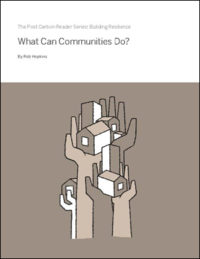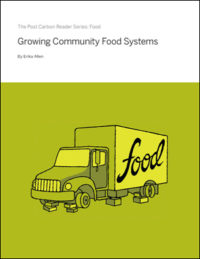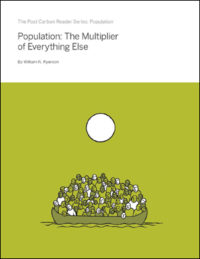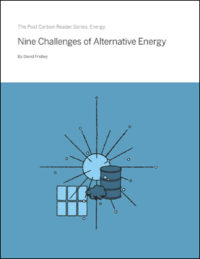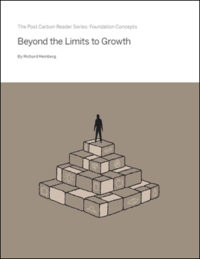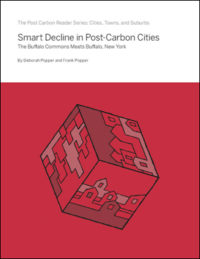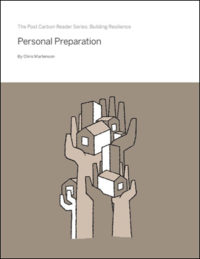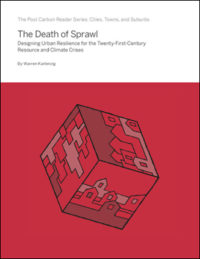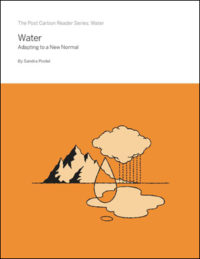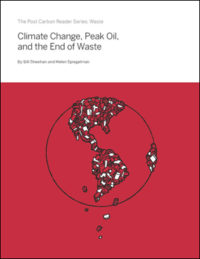
Climate Change, Peak Oil, and the End of Waste
We in rich contries have almost lost the ability to supply our own needs through local manufacturing and agriculture–or even to extend the life of products through reuse, repair and repurposing. We rely on others, and on a system lubricated by cheap oil, to meet our needs as well as our wants. In the post-peak-oil […]

